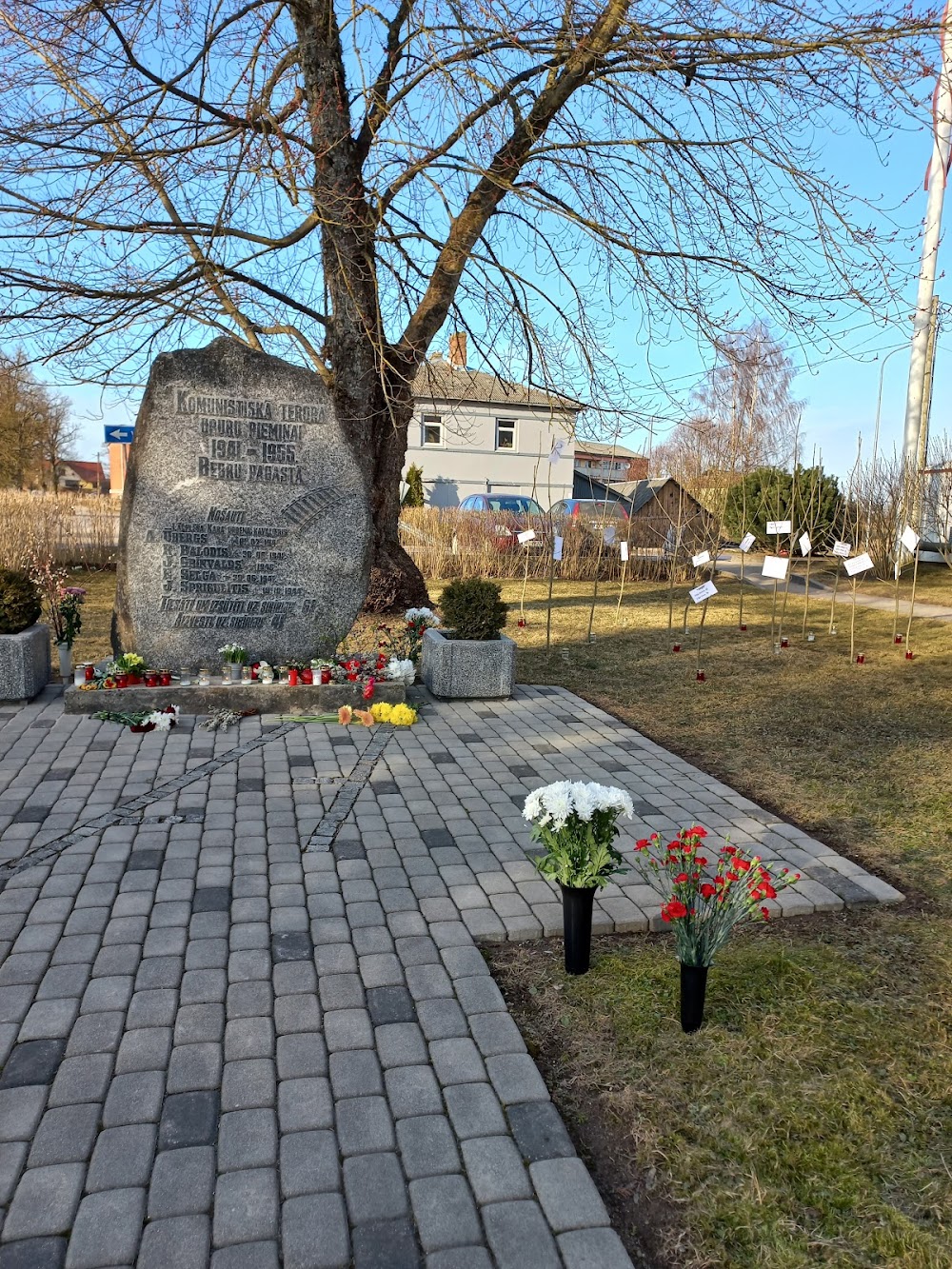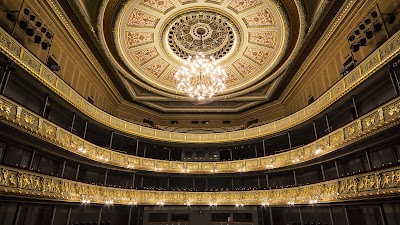Victory Memorial to Soviet Army (Uzvaras piemineklis)
Overview
The Victory Memorial to the Soviet Army in Babīte Municipality, Latvia, is a poignant and historically significant site dedicated to the brave soldiers who fought and sacrificed their lives during World War II. Conveniently located just a short drive from Latvia’s capital, Riga, this memorial offers a profound insight into a tumultuous period that has shaped the region's complex history.
Surrounded by a serene, green landscape, the memorial serves as a solemn reminder of the fierce battles that unfolded in the area during the war. The structure is both imposing and reflective, featuring dramatic sculptures and stone engravings that beautifully capture the essence of the soldiers' courage and suffering. At its heart stands a towering obelisk, often adorned with wreaths and flowers from visitors and veterans who come to honor the fallen heroes.
The history of the Victory Memorial is intricately tied to the events of 1944 when Soviet forces recaptured Latvia from Nazi German occupation. This liberation is a multifaceted and sensitive topic in Latvian history, marking the end of Nazi control while ushering in a prolonged Soviet occupation. For many, the memorial symbolizes a duality of remembrance, prompting reflections on the tumultuous events of the 20th century.
Completed in 1985 to commemorate the 40th anniversary of the end of World War II, the memorial was designed by a team of distinguished Soviet architects and artists. It showcases classical Soviet artistic styles, emphasizing the valor of the Red Army. Alongside the obelisk, expansive stone reliefs depict scenes of battle, soldiers in action, and the local population welcoming the Soviet troops, offering a vivid portrayal of the era.
One of the most intriguing aspects of the Victory Memorial is its role in contemporary Latvian society. Since Latvia regained its independence from the Soviet Union in 1991, the memorial has become a focal point for complex cultural and political discussions. It stands as a testament to the sacrifices made during the war while simultaneously reminding visitors of the subsequent decades of Soviet dominance. This dual significance makes the memorial a powerful site for historical reflection and education.
Visitors can further enrich their experience by exploring the adjacent museum, which offers extensive exhibitions detailing World War II's events in Latvia, the role of the Soviet Army, and personal stories from individuals who lived through that era. The museum features a diverse array of artifacts, photographs, and documents, providing a comprehensive understanding of the historical context and personal experiences from that time.
For tourists interested in historical sites, the Victory Memorial to the Soviet Army is a must-visit destination. It is not only a place to honor the past but also a site for understanding Latvia’s intricate history and the impact of global conflicts on smaller nations. Guided tours are available for those who wish to delve deeper into the memorial's rich history and significance.
In the nearby town of Babīte, travelers can find a variety of amenities, including cafes, shops, and accommodations, making it easy to incorporate the memorial into a day trip from Riga. The peaceful surroundings of the memorial provide a contrasting backdrop to the heavy historical context it represents, allowing for a quiet space for reflection and remembrance.
In summary, the Victory Memorial to the Soviet Army in Babīte Municipality transcends being just a historical monument. It is a site where history, memory, and cultural identity intersect, offering visitors a unique perspective on Latvia's past and the lasting impacts of World War II. Whether you are a history enthusiast, a student of politics, or simply a curious traveler, this memorial is an essential stop to grasp the complexities of Latvia's journey through the 20th century.





